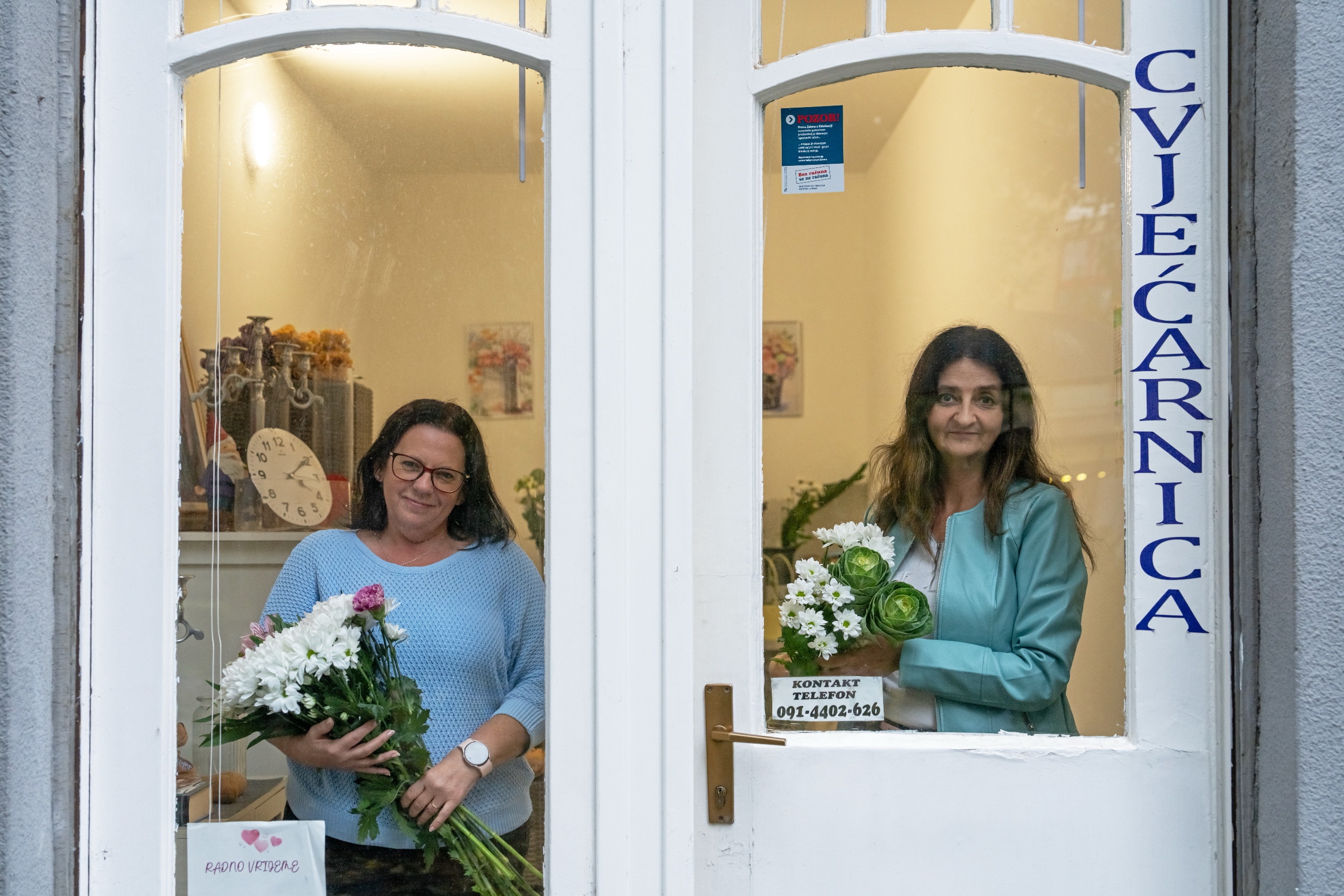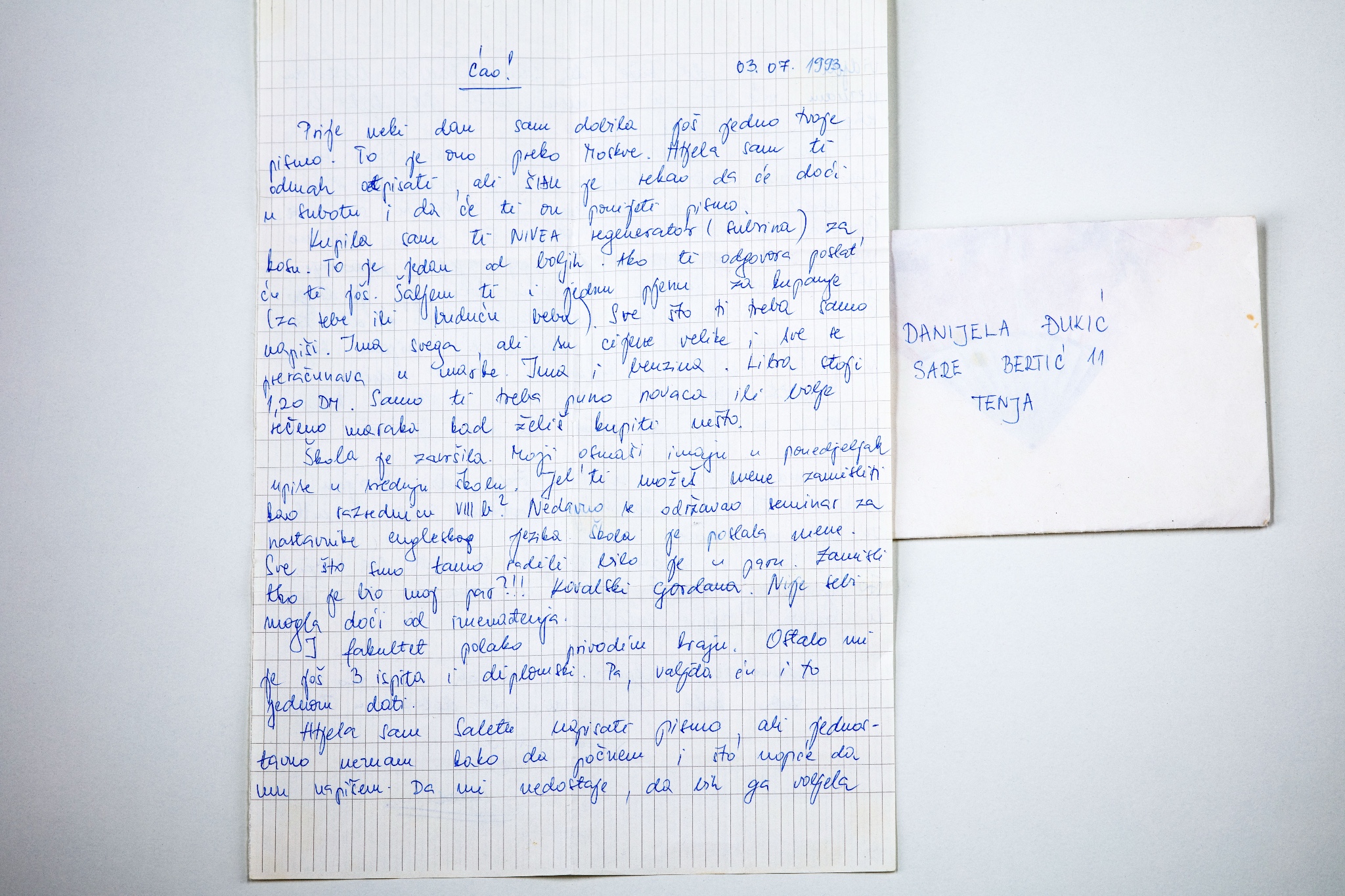Danijela Jovčić
1970

Danijela lives in Osijek and works at the Pension Insurance Office in Vukovar. Ever since she was a little girl, she dreamed of becoming a teacher. In 1990, she enrolled in the 1-4 grade study programme at the Faculty of Education, but then war got in the way. Tenja, a settlement only a few kilometres away from Osijek, to which her parents had moved before the war, was the front line of conflict and remained occupied until the end of the war.
I have two friends who are Croatian. I’ve been inseparable with one of them for 50 years, since we were three years old. With the other one, I had been inseparable before the war. During the war, I sent her letters via Hungary and the UNTAES, but she didn’t respond to them. One day, I called her from the kitchenette at work. “So, how you’ve been? What’s up?” I couldn’t wait to hear from her after all these years of separation. But she was extremely reserved. “I’d like to see you,” I admitted. She replied: “No offence, you know, but we have nothing to talk about anymore. Times have changed.” Thank goodness, nobody of mine got hurt during the war, but that conversation I had with her, those words of hers “we have nothing to talk about,” that was the worst thing I’ve ever experienced after the war.

Danijela and Mirna never ceased communication, not even during the war when they found themselves at opposite sides: the war befell Danijela in the so-called SAO Krajina, the self-proclaimed Serbian autonomous region, while Mirna stayed in Osijek, which was under siege and daily bombing in autumn and winter of 1991. Despite the blockage, they maintained contact through letters. Their close friendship has lasted to the present day.
